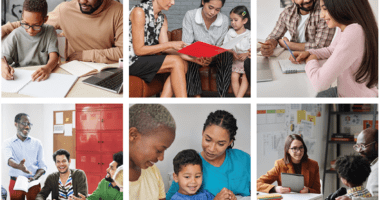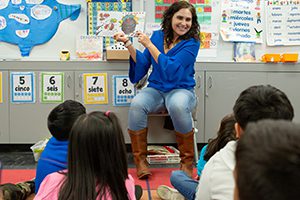How Civic Engagement and Activism Begin In the Classroom
Civics education should happen early and often, because it affects our everyday lives. Whether you are watching the news on your television, listening to it on the radio, or checking it on your phone, you are bound to find a report about an injustice committed on the political level somewhere in the country. Luckily for me, I came to this understanding during my sophomore year in high school. Other students, especially those who have been historically underserved, do not get this opportunity.
On the first day of 10th grade, my first class was AP World History. I had just transferred to School Without Walls Senior High School from another D.C. public school, so I quietly sat in the back of the room. The teacher walked in and asked about any current events that were on our minds. Several hands shot up. We only had time to hear a few issues, because with each shared current event came an intense discussion filled with additional information, well-formulated opinions, and speculations on its causes and effects.
I was completely in awe.
Never before had I seen teenagers like myself so vested in events taking place in the country and the world. I soon came to realize that my new school was full of students like this, so I would need to keep up with them. Lunchtime conversations with my new friends consistently revolved around the 2016 presidential election, Brexit, and ISIS.
Not only do our teachers encourage students to stay civically engaged, but the administration supports students’ desires to raise awareness of the issues that matter to us. For example, in response to the 2016 election, students in D.C. Public Schools organized a walkout and a march to the White House. School leadership respected our right to peacefully protest and did not deter our participation in the walkout or prevent students from leaving the building.
During my junior year, students were allowed to leave their classes and gather outside for the 17 minutes of silence that commemorated the lives lost in the Stoneman Douglas shooting. Toward the end of the year, our school held a voter registration drive so that students who were old enough could register to vote. Our ACLU club was even allowed to organize a three-day Washington D.C. Youth Civil Rights Summit. They brought in ACLU lawyers and keynote speakers to teach the attending high school students from schools all over D.C. about the work of the ACLU, social justice issues, and their rights as Americans.
Now that I’m a senior, I have discovered the importance of staying knowledgeable on current events and advocating for issues that I care about, thanks to the culture of my school. Unfortunately, not every student attends a school that emphasizes the importance of civics education. Only 10 states ask students to study in detail the ideologies of the political parties and Rhode Island is the only state that comes close to requiring that students examine where their own beliefs place them on the political spectrum. Furthermore, White students and students in wealthy schools are more likely to have civic education opportunities in schools than students of color and low-income students.
Soon, it will be my generation that will vote in the elections, run for office, and ultimately determine the direction that the country goes. Before we get to this point, we students all should be taught in schools about the significance of these responsibilities so that we will be prepared to one day assume them.
Chandler Nutall is a high school senior and a Partnerships and Engagement summer intern.




